KAUST Professor Carlos Duarte reflects on his ten years in Saudi Arabia after receiving the Japan prize for his pioneering blue carbon research
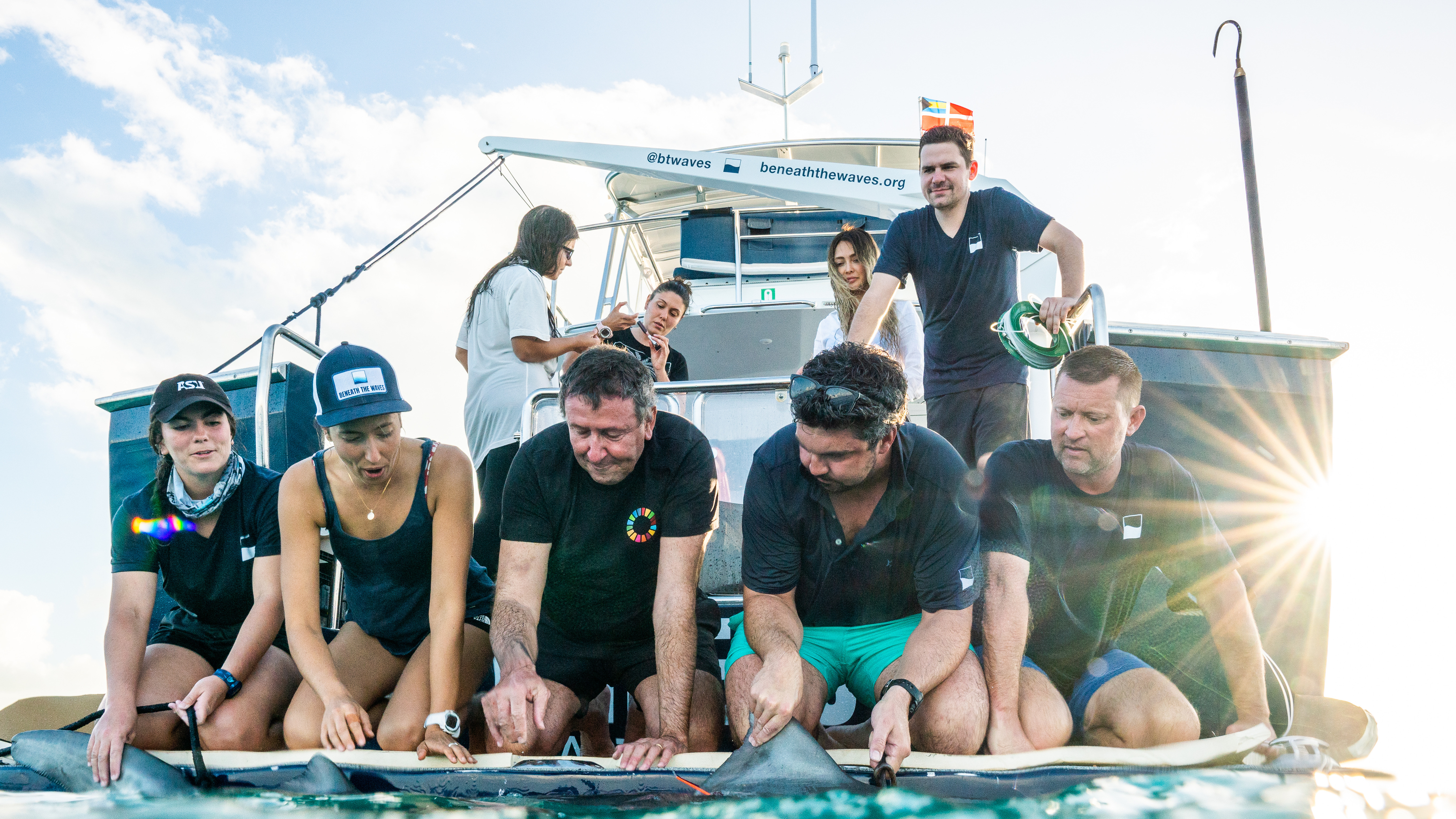
Duarte (third from left) on a normal day at work
The last several decades have witnessed a concerted effort for citizens and governments to be more “green.” Nations are seeking to grow economies that create green jobs, invest in innovations that produce green technology, and build infrastructure that generates green energy. While KAUST Ibn Sina Distinguished Professor Carlos Duarte applauds these efforts, he worries such focus on greening ignores the “blue” that covers more than two-thirds of the Earth’s surface. In 2009, Duarte coined the term “blue carbon” to highlight the importance of the world’s oceans in combating climate change. After decades of scientific research that established him as a global leader in ocean science, he is now such a trusted voice in the field that he is a leading advisor on ocean policies globally, especially of the Red Sea. His accomplished career has made him the recipient of several international awards, the most recent being the Japan Prize, the nation’s top prize for excellence in science and technology and one of the world's most prestigious.
Duarte’s arrival to KAUST in 2015 was at a very opportune time. Before then, KAUST was dedicated to building collaborations internationally and, by extension, building its reputation for research excellence across the globe. However, the scientific network connecting KAUST to the Kingdom remained weak.
“It would be fair to define KAUST at the time as an inward-looking institution that had strong collaborations overseas but very limited research engagements in the Kingdom,” said Duarte.
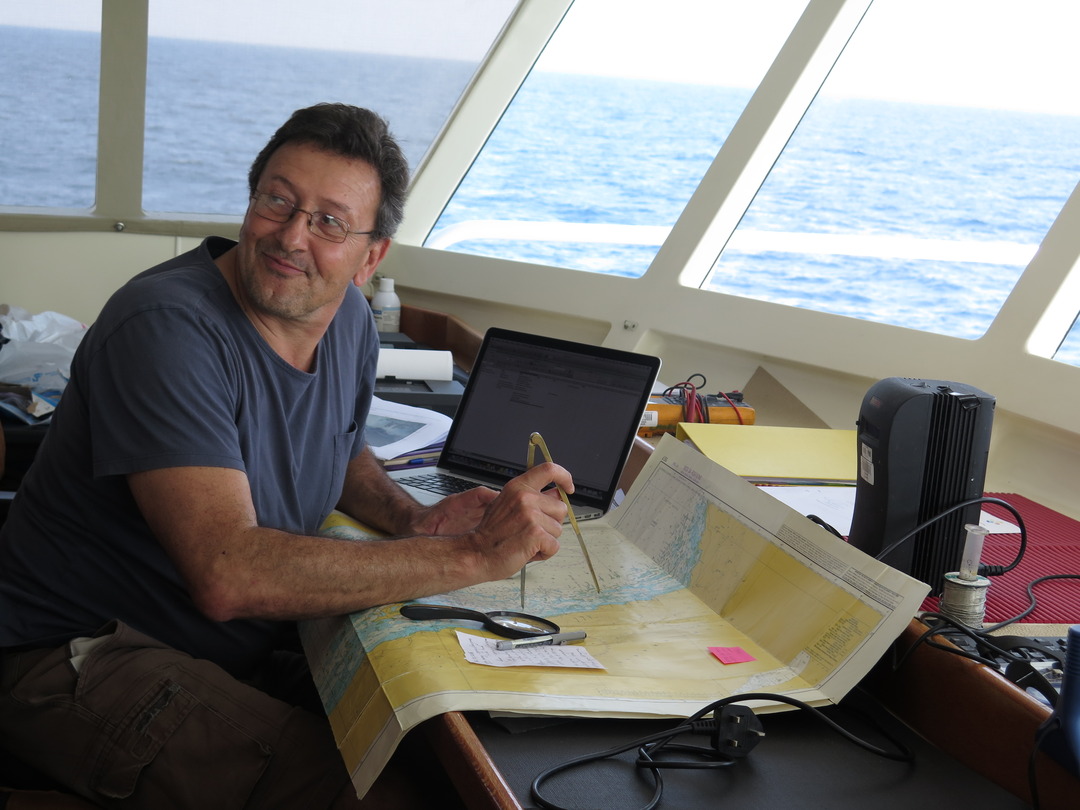
Duarte navigating the next science mission in the Red Sea.
At KAUST, Duarte quickly established his research team and his academic reputation with the Saudi government and soon found himself advising the Royal Court about projects in the Red Sea.
“[The Saudi government] introduced me to two giga-projects near the Red Sea. They asked me if it was possible to develop these areas for tourism with best sustainability practices for the sensitive ecosystems and biodiversity there,” he said.
In response, Duarte pushed hard for the Kingdom to pursue its development with an environmentally friendly approach, for which blue carbon is a pillar. Blue carbon strategies promote the conservation and restoration of coastal ecosystems such as mangroves, saltmarshes and seagrasses. These ecosystems remove carbon dioxide from the atmosphere and store it in their sediments.
The blue carbon concept takes a different view of the ocean economy. Traditionally, marine life has only had value when extracted and sold: a fish is valuable only when brought to market. Blue carbon provides a new perspective, one that, if fully appreciated, encourages more investment in conserving and enhancing marine ecosystems.
In response to Duarte's insights on the ocean's value, the Kingdom has relied on his and his KAUST colleagues' expertise to gather scientific data and build new technologies that form the basis of the informed decisions driving the many marine projects that are crucial to the Saudi Green Initiative, a grand plan for Saudi Arabia to transition to a green economy and be carbon net-zero by 2060.
“Professor Carlos Duarte’s groundbreaking work in blue carbon not only advances global understanding of marine ecosystems but also reinforces our nation’s focus in sustainable innovation. His contributions to climate change solutions and marine conservation are invaluable and reflect the excellence we strive for as part of Vision 2030,” said HE Dr. Fahad bin Abdullah Toonsi.
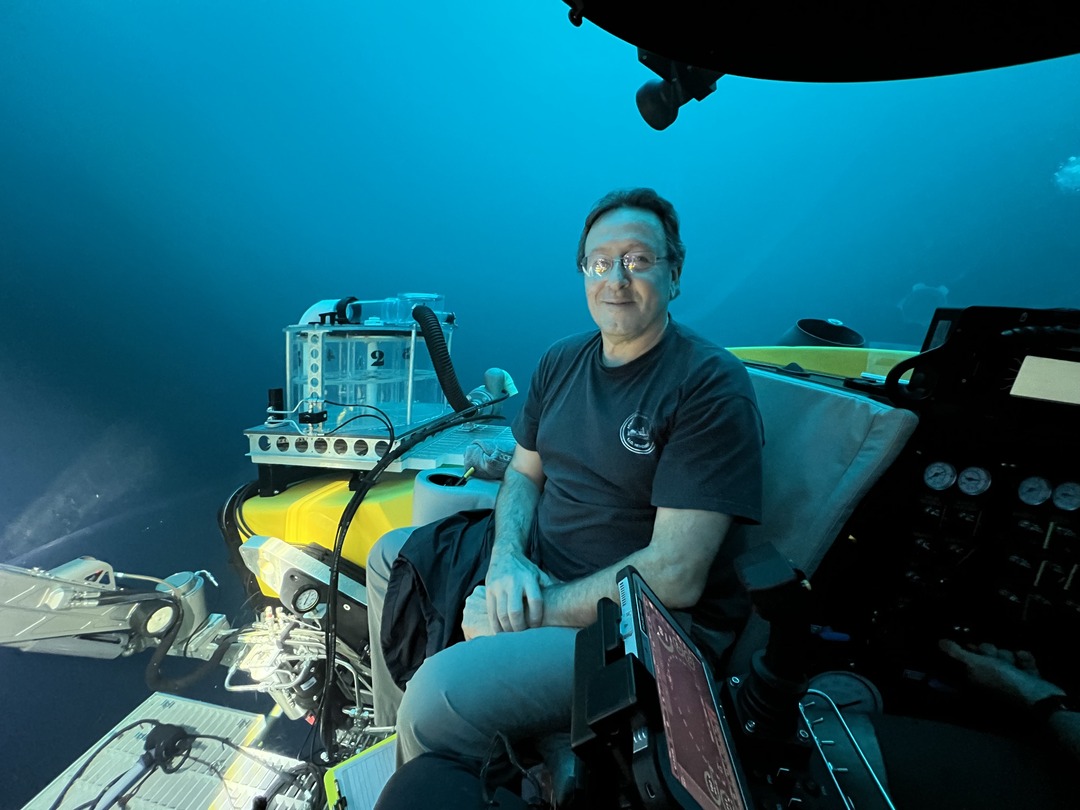
Duarte on an underwater expedition in the Red Sea.
Blue carbon ecosystems
When Duarte began his research career, there was little understanding about blue carbon ecosystems. However, after decades of research, we now know that these ecosystems are responsible for 50% of the ocean’s carbon burial capacity even though they occupy only 0.2% of the ocean’s surface.
Moreover, blue carbon ecosystems absorb much more carbon than their terrestrial counterparts such as forests — five to ten times more, in fact — and they store the carbon for much longer. “Because blue carbon ecosystems have anaerobic soils and are free from forest fires, which do not occur underwater, they hold carbon for hundreds to thousands of years. In contrast, forests only hold carbon for decades or a few centuries. So restoring and sustaining mangroves, seagrass and other coastal ecosystems can have a large contribution to achieving carbon net-zero goals,” said Duarte.
The research required to quantify this impact is not trivial. Compared with terrestrial ecosystems, marine and coastal ecosystems are difficult to study. Satellites are far less effective at surveying underwater habitats and much harder for people to transverse than land.
While at KAUST
|
While a great deal of data indicates that many blue carbon ecosystems are disappearing — 35% of mangroves are estimated to have been lost in the 1980s and 1990s alone — advanced technologies and clever experiments are revealing unknown ecosystems. Recently, by attaching sensors to sea turtles to observe their foraging patterns, Duarte and his research team found new seagrass meadows that increased the seagrass area in the Red Sea by more than 10%. And earlier this year, he led the first scientific expedition from Saudi Arabia to visit Antarctica to investigate how whale populations contribute to carbon sequestration and thus mitigate climate change as the populations recover.
“There is no doubt that blue carbon ecosystems are being lost due to human pressures, but for effective policy, we need to have reliable data, and the truth is oceans are much harder to measure than land,” he said.
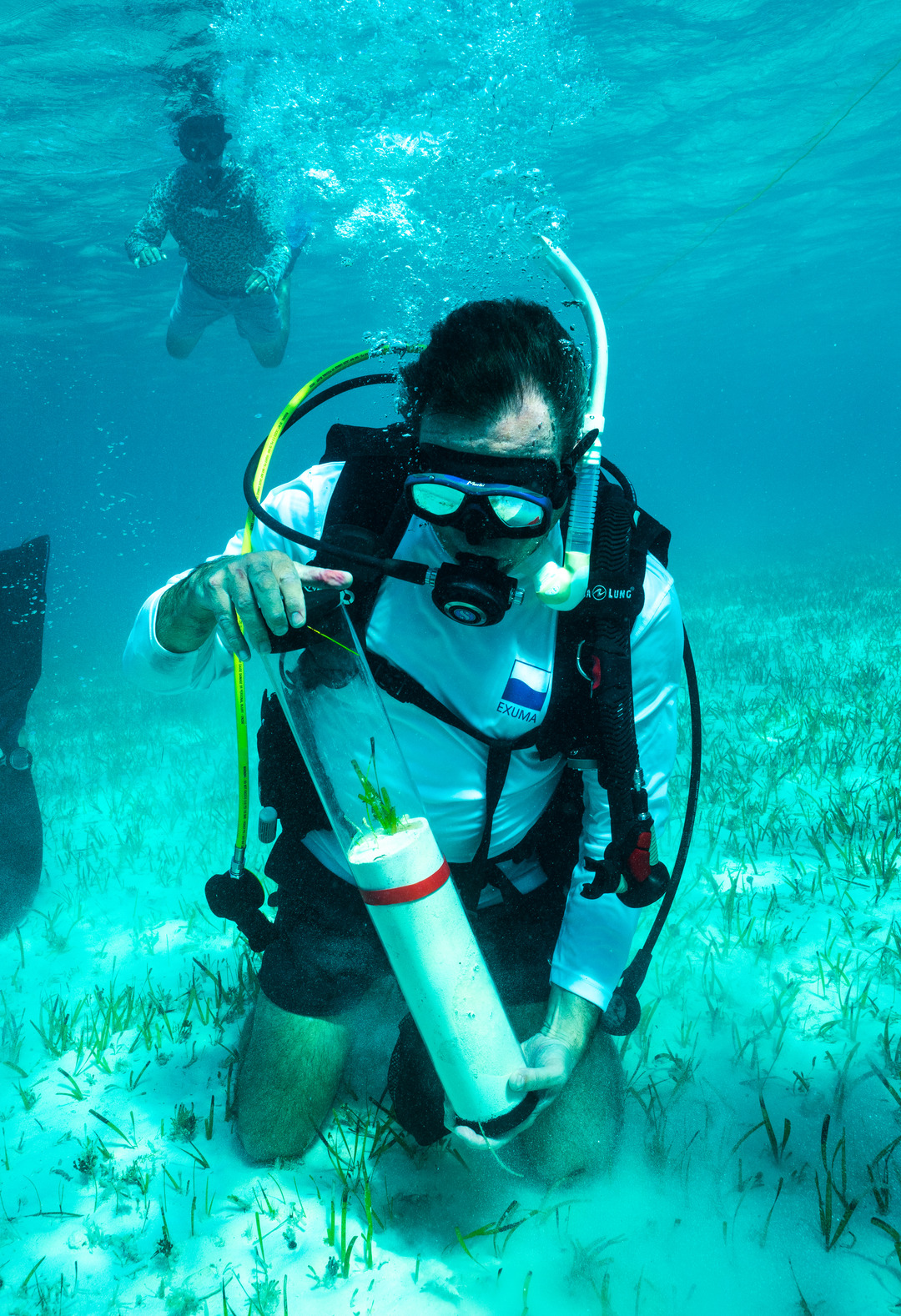
Duarte collecting samples in the Red Sea
An unexpected road travelled
Reflecting on his status today as a thought leader in marine ecology and its preservation and restoration, Duarte is not shy to admit that he was anything but a child prodigy in his early years and far from certain to achieve scientific excellence. Born in Portugal, he was raised by a modest family that moved to neighboring Spain, where he learned his second language and caried out his education all the way through to university.
For his Ph.D. in Canada, Duarte studied limnology, the study of ecosystems in freshwater bodies. However, as he reached the end of his studies, unlike other scientists who dwell deeper into their area of expertise upon graduation, Duarte wanted to step back and identify how his observations of lakes and rivers compared with general trends and patterns for all bodies of water. It helped that many of the aquatic plants he studied for his doctorate were ancestors of seagrass.
“Seagrasses exist downstream of rivers and lakes, so it was only natural for me to ‘follow the flow,’” he said, referring to his transition to researching aquatic plants in oceans. What he learned about seagrasses would position him to become the marine thought leader he is today.
Saudi Arabia has changed him for the better
The Japan Prize is another testament to the impact Duarte has had on Saudi Arabia; but that impact has been reciprocated. His only grandchild was born in Jeddah, and in 2024 Duarte adopted the Arabic name Khalid Al Andalusi, in reference to the region of Al Andalus, the Arab term that encompasses the Iberian Peninsula (Spain and Portugal). He also takes pride seeing KAUST produce the Kingdom’s future leaders, such as his student Hanan Almahasheer, who was the first Saudi to earn a doctorate in marine biology at a Saudi institution. Duarte was honored to give Almahasheer her hood, as is tradition during graduation ceremonies when the supervising professor places a hood over the student to announce completion of the doctorate program.
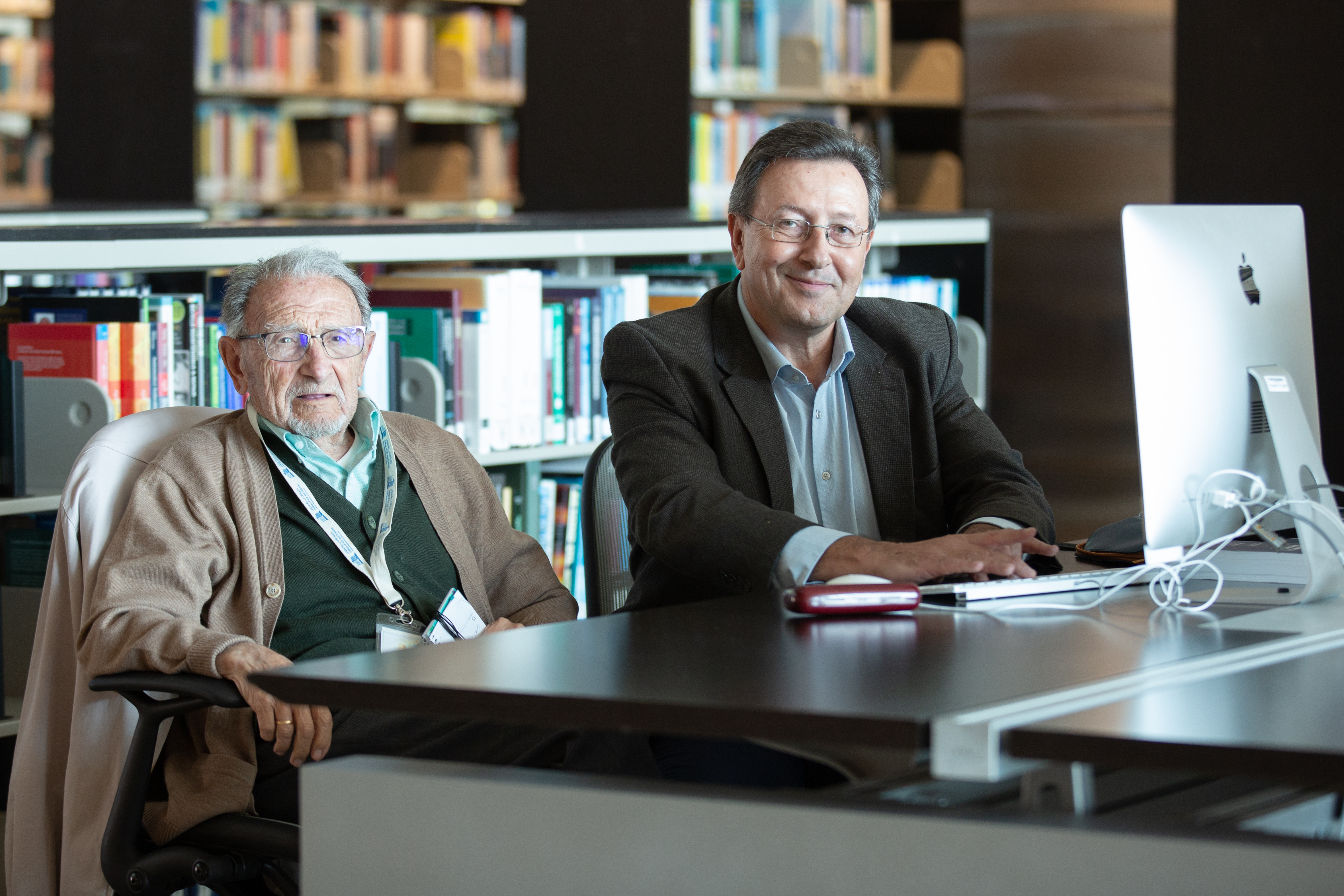
Duarte with his father-in-law at KAUST.
“I have witnessed the impossible turn possible, a profound metamorphosis of a nation guided by the wisdom of [the Custodian of the Two Holy Mosques] King Salman bin Abdulaziz Al Saud and the exemplary and visionary leadership of HRH Prince Mohammed bin Salman Al Saud, [Crown Prince and Prime Minister], whose commitment, intelligence, intuition and remarkable capacity to work tirelessly for his country have inspired a generation of citizens into awakening to a new world full of opportunities,” as he said while reflecting on his ten years in the Kingdom.

